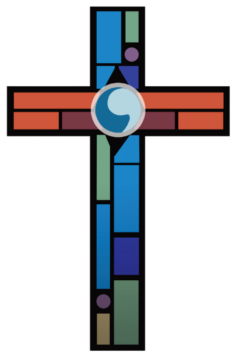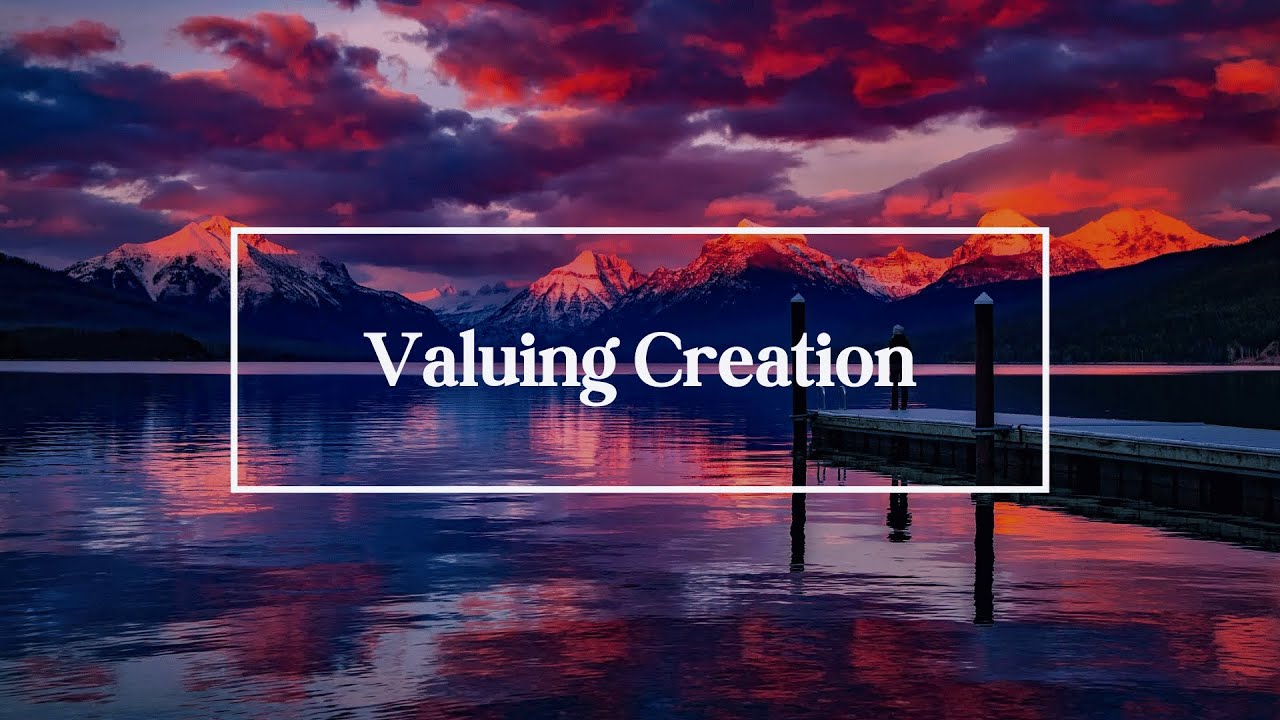A good friend suggested that I create this sermon as a sermon for my granddaughter, Frankie. So we can share this with her later in life, to tell her about all that there is, all of the creation that I love so much.
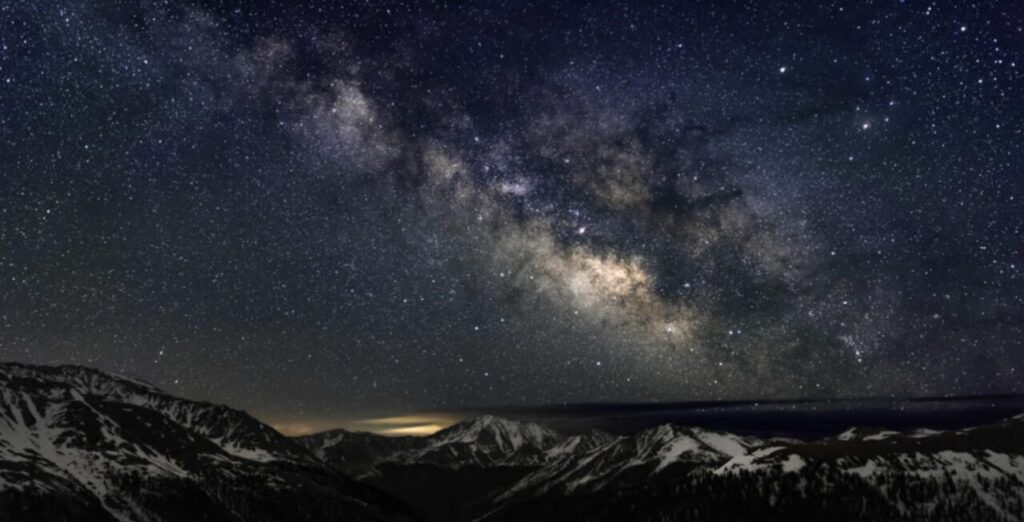
There is so much that God has made for us to appreciate and our response was to be in awe and worship of our God.
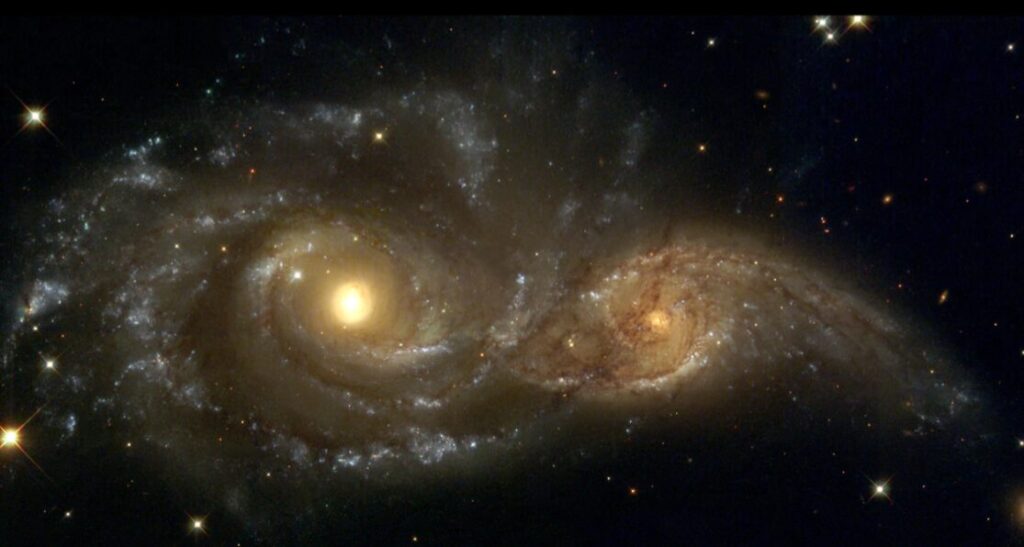
Captured by the Hubble Telescope
That God took the time to put this all together. As Christians, we believe both. We believe in evolution. We believe it started billions of years ago, probably with a big bang. And we believe in intelligent design. We believe that there are webs of life and things that are created that are beyond our understanding.
We are grateful that we have minds that can see some of these pieces. That we can develop things like the Hubble telescope to show us galaxies far away from here, and what’s happening much further than we can see or imagine.
Because there is so much that God created and is still creating. But that it all started at one point, and all of it comes together.
At some point God created this piece called the sun and created this planet with the ability to sustain life as we know it. With all of the gases, the oxygen, and then the plants and all of the other pieces so that we could live here.
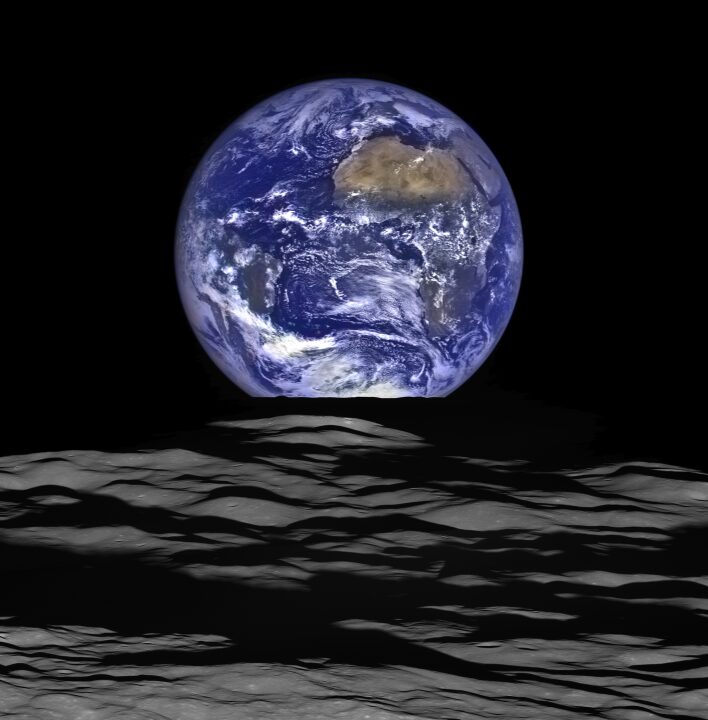
It is such a gift to us. We even had the ability to go to the moon and be able to see the earth in its entirety, to be able to look back on the planet that we live on.
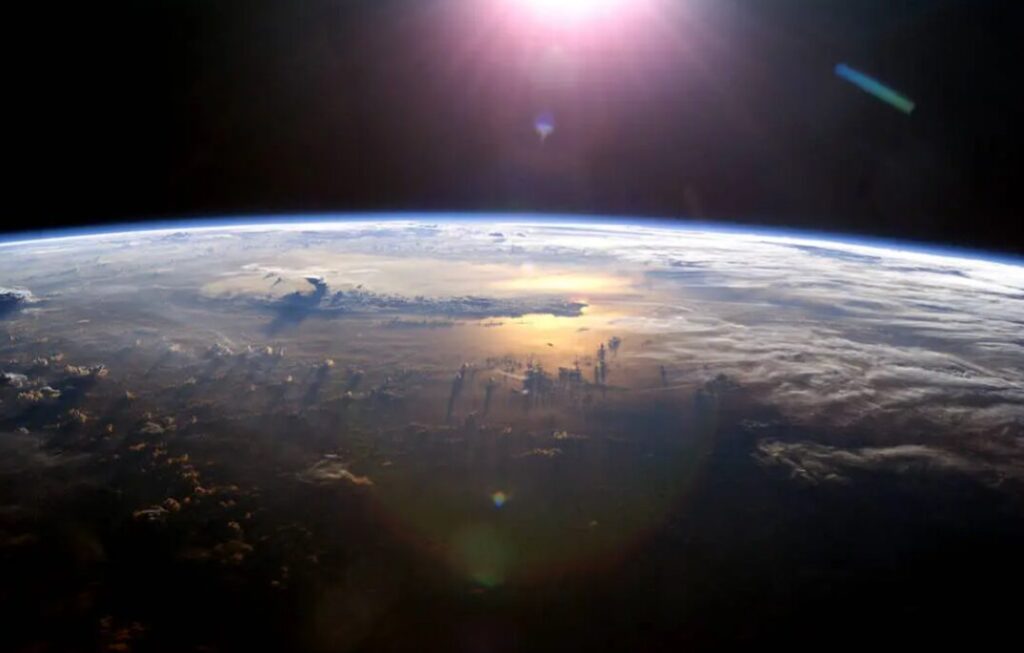
But unfortunately, there are still people who think that the story I just read is a history story. They think that the Earth is the center of the universe. But we know that that’s not true. We’ve seen that the sun is the center of our galaxy and that there are so many other galaxies. There’s so much more.
We want you to embrace both, to embrace that God was in all of its creation and that it is so much more than we can imagine.
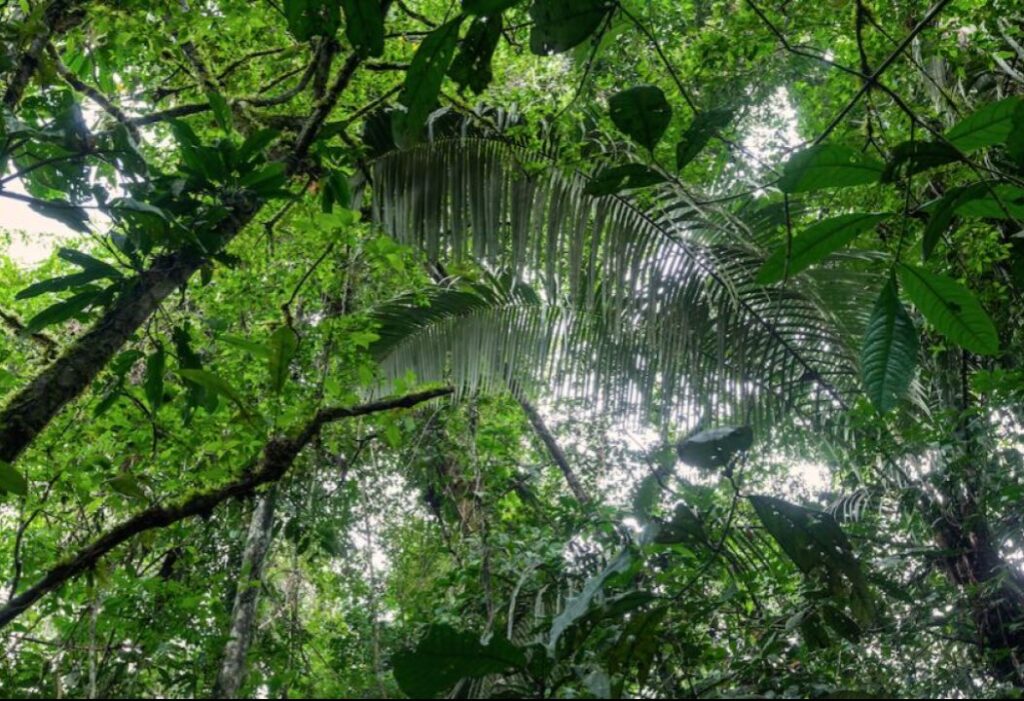
That there are places on this earth like the Amazon rainforest, with it’s trees and plants, they are part of this ecosystem. That it all works together to keep our air clean, to keep our streams clean, to feed all of the creatures. To give the creatures home. Because home is so important to us.
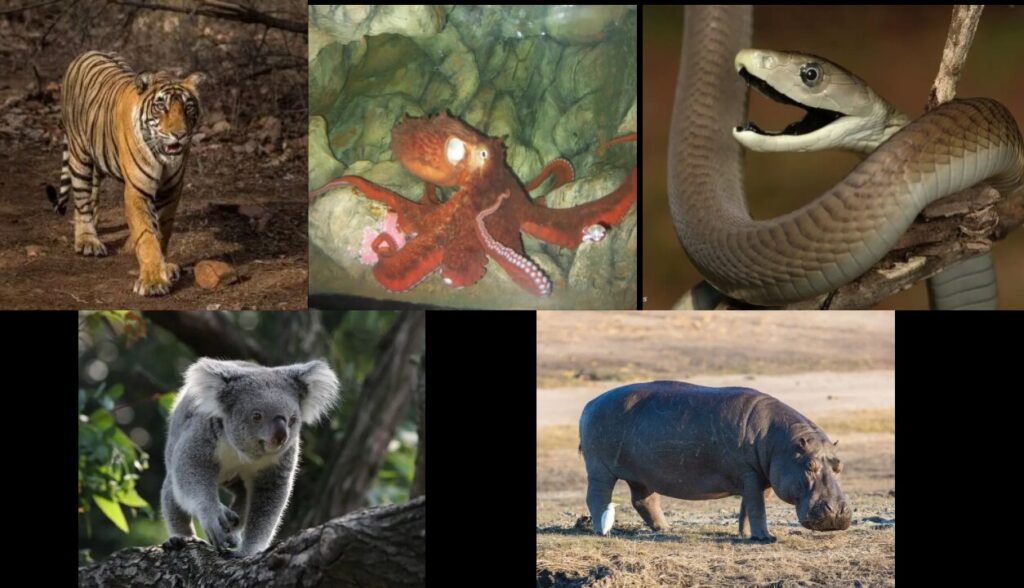
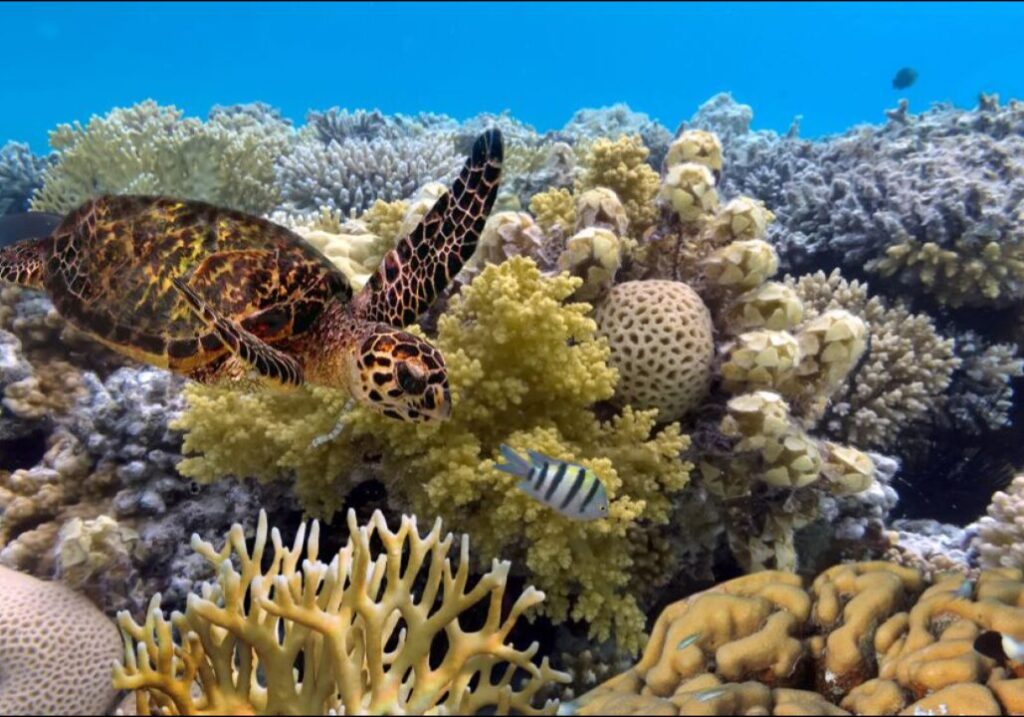
God created the seeds and in the water, God put all those creatures to help us learn more, to help us have food, to have them so that they can feed together.
He gave us animals in this great web of life. Animals that we love and animals that we’re not so sure we want to be around. We’re still trying to figure out why you made the cockroach and what is its purpose. It has lived long. It’s one of the longest living beings and we haven’t found its purpose, but, we believe there’s a purpose, that everything has a purpose.
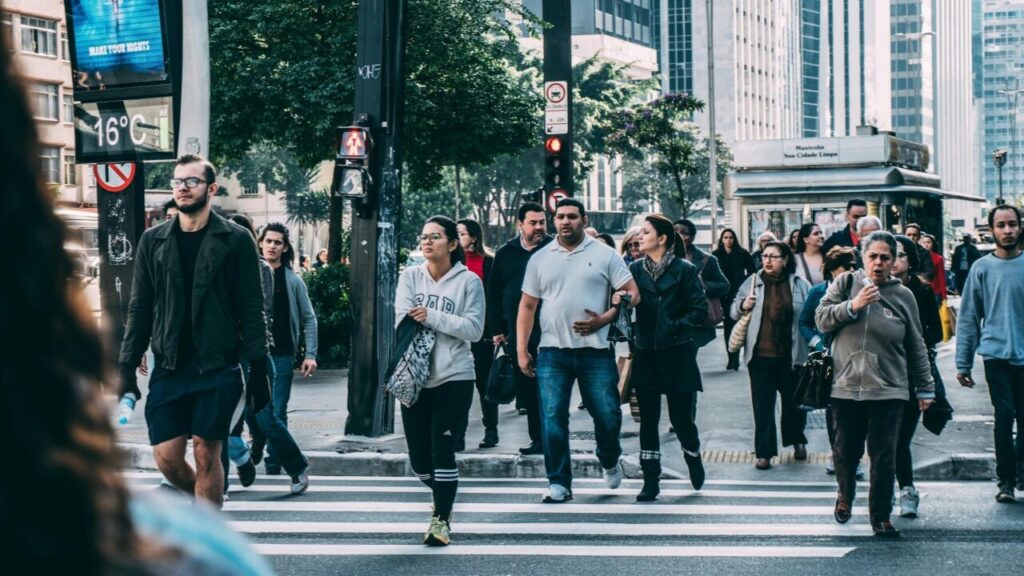
You created us. You created us in all of our diversity, with all of our skin tones, and hair colors, and eye colors. You called it good. You called all of it good, just as you created it. It was perfect, but you gave us minds. In our minds, we believe that we know better. That we know better than you. So we start tinkering with things. We’re not content with the way it was. We want more. We want it to be easier. We don’t want to have to work so hard.
We can be better at taking care of your creation. But we want life to be easier and we want to make money.
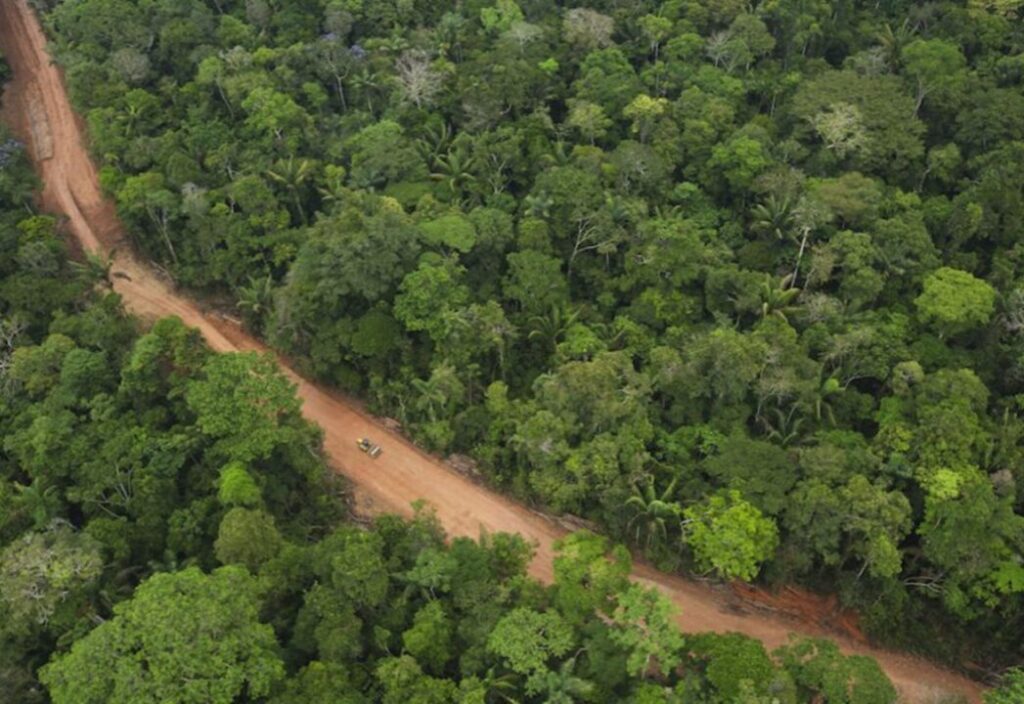
So in the Amazon we’ve created roads and we have deforested parts. Now we’re suffering because we didn’t replant the trees. We didn’t care for God’s creation the way we were intended to.
Because we just wanted it to be easier. We wanted to be able to get bigger trucks in there to take out more of the wood so we could build more things. More homes because there were more people and we needed to. Some of that’s good and some of it was just about greed. We weren’t kind in the ways that we did it.
We didn’t do it in ways that sustained God’s creation.
We created these plastics because we didn’t want to have to do the dishes all the time. We wanted to be able to throw things away, but then we ended up with too much garbage. So, back in the 70s, we decided that since we were running out of space for the garbage, we’d put it on barges and send it out to sea, because that’s a good idea.
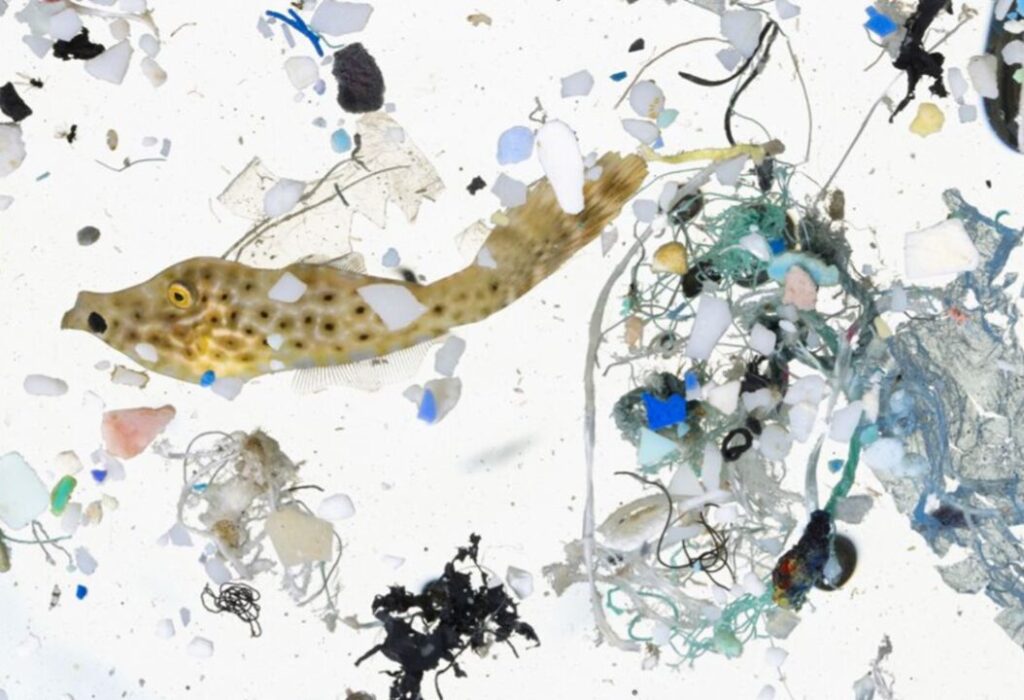
At least we don’t have to look at it. We didn’t realize that we were contaminating the water. We’ve created an island, an island in the Pacific that is plastic and is uninhabitable. We have killed God’s creatures because they are full of plastic. The plastics break down into microplastics that are like little beads all over the ocean floor. They’re in our food because the fish that we eat have them in and they’re in our water supplies.
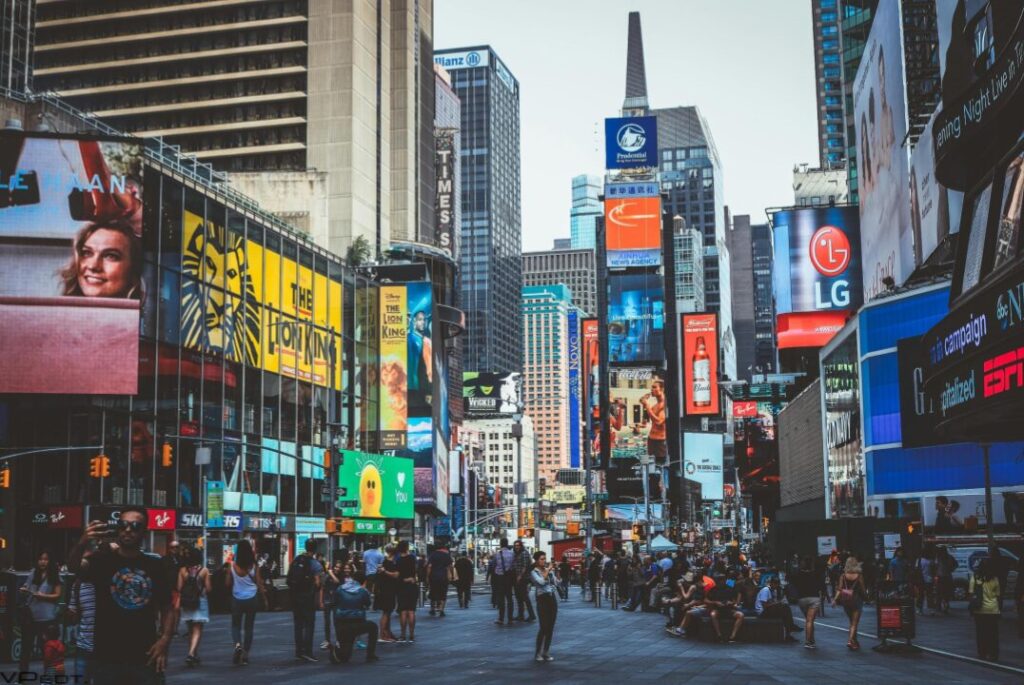
We haven’t been good at making sure that we clean up. We just wanted it to be easier. We wanted to throw everything away instead of washing it. We found out it wasn’t good.
The places that we live, we wanted more. We just wanted it bigger and brighter and light. Now we can’t even see the stars because we’ve made so many lights. And we’ve ruined the beauty of your creation. Because we wanted it to be easier. We wanted to be able to have what we wanted, what was going to make us happy in the moment.
We didn’t think about the fact that we have such a potential for destruction.
I was reminded this morning about the 80th day of D Day coming up this week. That means that we’re not far from the 80th anniversary of Nagasaki and Hiroshima. It left me wondering, what does that look like now? Has nature been able to finally come back there? Or is it still all dead and destroyed?
Because we have such a potential to create good, and we have such a potential to destroy. But God only has a potential to create. God has the potential to destroy, but God looks to create life. We cannot create life out of nothing. We need God’s help. We’re created, God created us to create more people, but we cannot just take nothing and create life.
We’ve been trying. AI will be part of your world, Frankie. That is where we are trying to have technology take over life. There’s such advantages, but we have to look at the costs.
We have not always looked at the costs of our actions.
One of the pieces that we are seeing is that the temperature of our earth has risen. From 1880 until 1980, the first hundred years, of them watching and paying attention to the temperature of the earth, it was fairly stable. But since 1980, we have been on a sharp incline.
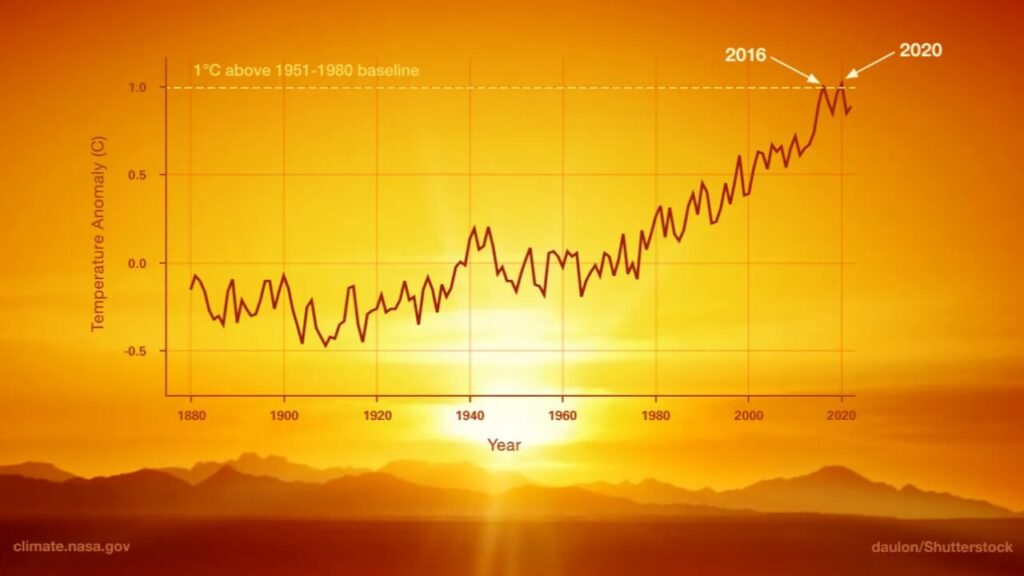
In 2020, the chart shows that actually we were at one degree Celsius over the north, what they’re calling the baseline, which was closer to where the 1880 to 1980 was. Since 2020, we are now 1.4 degrees Celsius over baseline. So we went up 0.4 in those four years. We’re still going up.
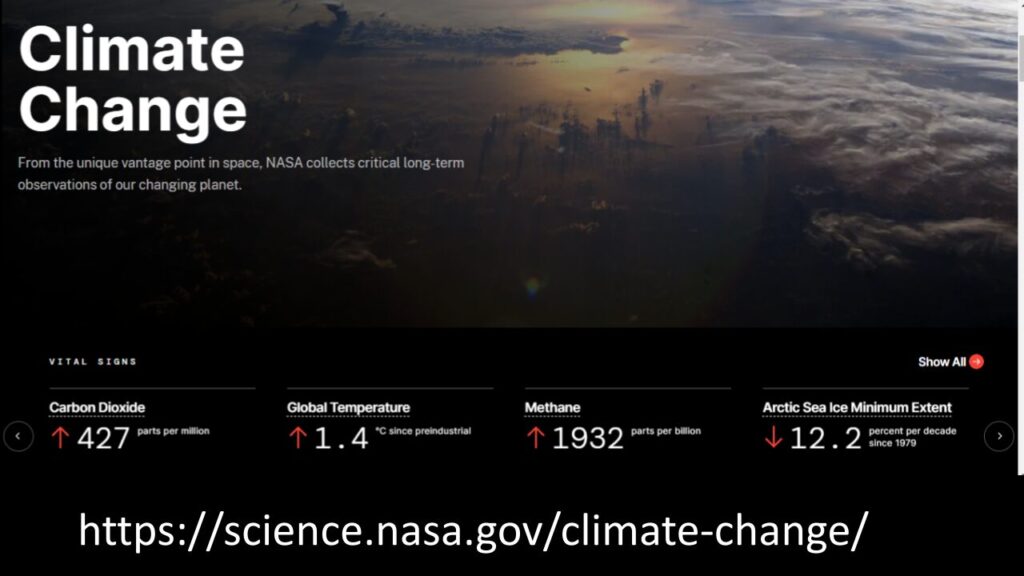
Carbon dioxide has increased 427 grams parts per million, the global temperature is 1.4x higher, we’ve been losing 12.2% of our Arctic ice every decade since 1980. There are only so many 12.2% after 1980. So, we’ve lost about 50% of the Arctic ice since 1980.
I don’t know what life is going to look like in the 22nd century.
What I do know, is that this congregation has made a commitment to environmental advocacy, to environmental stewardship, and to making a difference. So, what we can do is we can do the research. To find out what are the steps we can take together as a church in stewarding our property and encouraging our community to be better stewards.We can do that research together and we can tell people about it.
We do still have a choice. I’m hearing that 1.5 degrees Celsius, some of the scientists think that that’s the point of no return.
But we still have the ability to change how we live. The question is, will we?
I want to do it for you because I want you to have and to see the beauty in the world that I have seen. To see the stars at night. To be able to put your hands in the soil and grow food for yourself and food for others.
